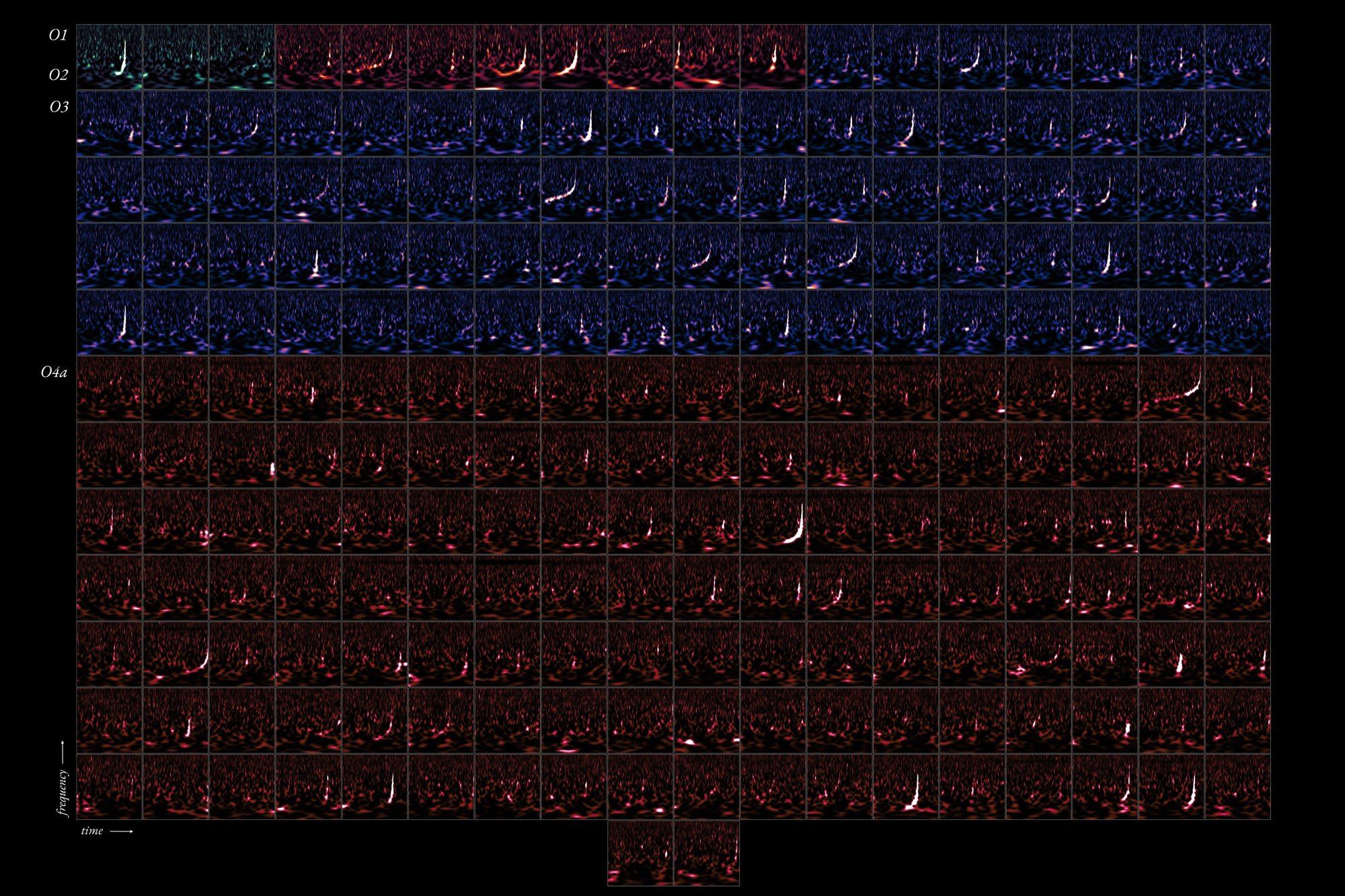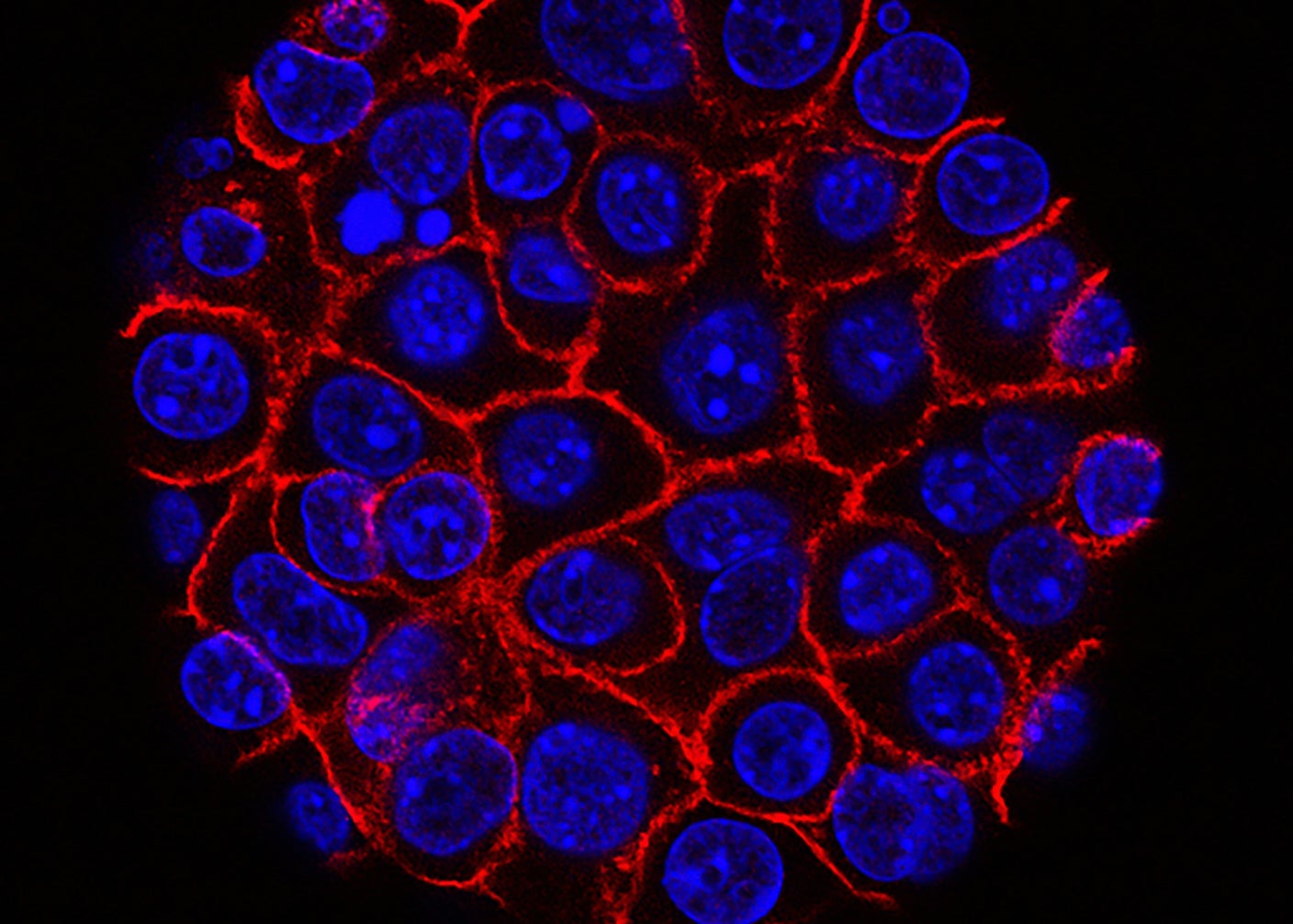entangled dot cloud

MIT engineers develop a magnetic transistor for more energy-efficient electronics
Transistors, the building blocks of modern electronics, are typically made of silicon. Because it’s a semiconductor, this material can control the flow of electricity in a circuit. But silicon has fundamental physical limits that restrict how compact and energy-efficient a transistor can be.MIT researchers have now replaced silicon with a magnetic semiconductor, creating a magnetic transistor that could enable smaller, faster, and more energy-efficient circuits. The material’s magnetism strongly
Daily briefing: Galileo’s notes discovered in the margins of an ancient book
<p>Nature, Published online: 03 March 2026; <a href="https://www.nature.com/articles/d41586-026-00739-x">doi:10.1038/d41586-026-00739-x</a></p>Historians have discovered some recognizable jottings in a 400-year-old copy of Ptolemy’s The Almagest. Plus, tectonic plates might’ve started moving earlier than we thought and how fluorescent-protein labels can be used as quantum sensors.
Mysterious brain cells clear proteins that contribute to Alzheimer’s disease
<p>Nature, Published online: 05 March 2026; <a href="https://www.nature.com/articles/d41586-026-00747-x">doi:10.1038/d41586-026-00747-x</a></p>When specialized cells called tanycytes stop working, disease-causing tau proteins build up in the brain.

Neutrons reveal magnetic signatures of chiral phonons
Physicists in China have uncovered new evidence that chiral phonons and magnons can interact strongly inside magnetic crystals. Using neutron spectroscopy, a team led by Song Bao at Nanjing University mapped magnetic signatures linked to chiral phonons in a ferrimagnetic material, revealing a previously elusive relationship between lattice vibrations and magnetic excitations. Reported in Physical Review Letters, the results could help researchers better understand how heat, sound and spin intera

New catalog more than doubles the number of gravitational-wave detections made by LIGO, Virgo, and KAGRA observatories
When the densest objects in the universe collide and merge, the violence sets off ripples, in the form of gravitational waves, that reverberate across space and time, over hundreds of millions and even billions of years. By the time they pass through Earth, such cosmic ripples are barely discernible.And yet, scientists are able to detect them, thanks to a global network of gravitational-wave observatories: the U.S.-based National Science Foundation Laser Interferometer Gravitational-Wave Observa
Show HN: I Built a Digital Sculpture
This image came to me during my meditation practices. It symbolizes the flow of consciousness wrapped in an incomprehensible reality.<p>The sculpture is interactive and responds to mouse movement.<p>All of the text was generated by an LLM, with the sculpture’s own code used as the prompt. I asked the LLM to generate some text for debugging, and it produced the phrase from which the rest of the text was later created:<p>WORDS BECOME WAVES AND THE WAVES BECOME LINES AND THE LINES BECOME NAMES
Show HN: MarkNote – Local-First Wysiwyg Markdown Editor (Tauri/Rust)
I've been a long-time user of Typora, which I still think is a fantastic piece of software. However, as I used it daily, I felt there were areas that could be pushed further—specifically regarding modern extensible editor engines, more flexible diagram support, and overall performance footprint. This led me to build MarkNote.Why Tauri & Rust?
I chose Tauri over Electron because I wanted MarkNote to be as lightweight and fast as possible. By leveraging Rust, we get a much smaller binary
Show HN: Open dataset of real-world LLM performance on Apple Silicon
Why open source local AI benchmarking on Apple Silicon matters - and why your benchmark submission is more valuable than you think.The narrative around AI has been almost entirely cloud-centric. You send a prompt to a data center, tokens come back, and you try not to think about the latency, cost, or privacy implications. For a long time, that was the only game in town.Apple Silicon - from M1 through the M4 Pro/Max shipping today, with M5 on the horizon - has quietly become one of the most
A genetic switch turns off parental behaviour and drives infanticide in male striped mice
<p>Nature, Published online: 04 March 2026; <a href="https://www.nature.com/articles/d41586-026-00656-z">doi:10.1038/d41586-026-00656-z</a></p>Male parenting in mammals is highly variable, ranging from caring to neglectful and abusive. The brain and behaviour of the African striped mouse reveal that, in males, the social environment and expression level of the Agouti gene affect whether the animals will be hostile or caring towards pups.
Record-breaking photodetector captures light in just 125 picoseconds
A new ultrathin photodetector from Duke University can sense light across the entire electromagnetic spectrum and generate a signal in just 125 picoseconds, making it the fastest pyroelectric detector ever built. The breakthrough could power next-generation multispectral cameras used in medicine, agriculture, and space-based sensing.

What's going on inside quantum computers? New method simplifies process tomography
Quantum computers work by applying quantum operations, such as quantum gates, to delicate quantum states. Ideally, quantum computers can solve complex equations at staggeringly fast speeds that vastly outpace regular computers. In real hardware, the operations of quantum computers often deviate from the ideal behavior because of device imperfections and unwanted noise from the environment. To build reliable quantum machines, researchers need a way to accurately determine what a quantum device is
Show HN: Dracula-AI – A lightweight, async SQLite-backed Gemini wrapper
I'm an 18-year-old CS student from Turkey. I've been building Dracula, a Python wrapper for the Google Gemini API. I initially built it because I wanted a simpler Mini SDK that handled conversational memory, function calling, and streaming out of the box without the boilerplate of the official SDK.Recently, I got some well-deserved technical criticism from early users: using JSON files to store chat history was a memory-bloat disaster waiting to happen; forcing a PyQt6 dependency on se
Show HN: Quantlix – Runtime enforcement layer for AI systems
Hi HN,I'm building Quantlix, a runtime control plane for AI systems.Most tooling focuses on training, fine-tuning, or deployment. In practice we've found many failures happen at runtime when requests reach the model.Quantlix sits inline in the request path and evaluates requests before execution. It can enforce:• schema contracts
• policy rules
• budget limits
• retry amplification controlsEvery decision produces a structured enforcement log.I'm currently looking for feedback from
Show HN: I built a LLM human rights evaluator for HN (content vs. site behavior)
I built Observatory to automatically evaluate Hacker News front-page stories against all 31 provisions of the UN Universal Declaration of Human Rights — starting with HN because its human-curated front page is one of the few feeds where a story's presence signals something about quality, not just virality. It runs every minute: https://observatory.unratified.org. Claude Haiku 4.5 handles full evaluations; Llama 4 Scout and Llama 3.3 70B on Workers AI run a lighter free-tier pass.M

Debugging a quantum processor: New method pinpoints qubit errors during logical operations
Researchers at the University of Innsbruck, together with partners from Sydney and Waterloo, have presented a new diagnostic method for quantum computers. It makes errors in individual quantum bits visible during logical calculation and evaluates them. The new method was demonstrated on an ion trap quantum processor in Innsbruck. It can be used to identify critical error sources—a key to developing more robust, fault-tolerant quantum processors.
World’s smallest OLED pixel could transform smart glasses
Researchers have built the smallest OLED pixel ever made—just 300 nanometers across—without sacrificing brightness. By redesigning the pixel with a nano-sized optical antenna and a protective insulation layer, they prevented the short circuits that normally plague devices at this scale. The result is a stable, ultra-tiny light source that could allow full HD displays to fit on an area the size of a grain of sand.
A simple hand photo may be the key to detecting a serious disease
Researchers at Kobe University have developed an AI system that can detect acromegaly, a rare hormone disorder, by analyzing photos of the back of the hand and a clenched fist. The disease often develops slowly and can take years to diagnose, even though untreated cases may shorten life expectancy.

These Supercharged Immune Cells Completely Eliminated Solid Tumors in Mice
The technology, which uses genetically engineered T cells, could target nearly two dozen different solid cancers with one treatment. Few cancer treatments are as ferocious as CAR T cell therapy.Often derived from a patient’s own immune cells, CAR T cells are genetically modified to hunt down and destroy cancer cells. The FDA has approved treatments for deadly blood cancers, and treatments tackling autoimmune diseases and preventing tissue scarring in the heart and kidneys have shown promise.Yet
Is Reality an Illusion? New Theory Challenges Modern Physics
A physicist proposes that consciousness is the fundamental basis of reality, with matter and spacetime emerging from it.
Tiny atomic tweak turns silicon into a high-efficiency light source for quantum internet
In the strange world of quantum physics, even the tiniest tweak can unlock outsized rewards.





